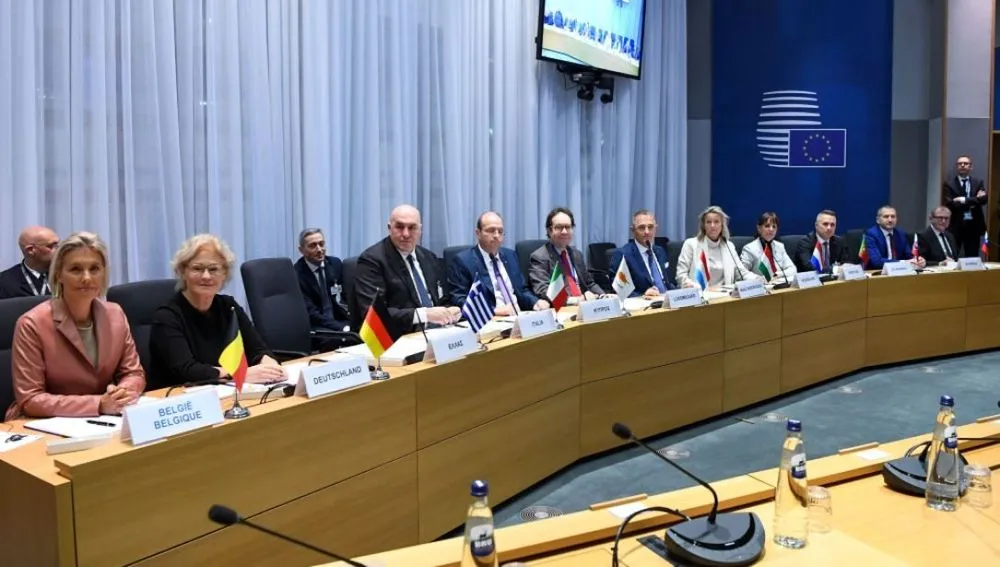EU approves 15% defense budget increase as ministers sign off on joint military CERT
Defense ministers from all but one of the European Union’s member states signed off on Tuesday on a 15% budget increase for the European Defence Agency (EDA) as the bloc pushes forward with greater integration between members’ militaries.
“After several years of zero net growth budget, the increase will help enhancing domain expertise on land, in the air, at sea, in space, and in cyber,” the EDA stated.
The EDA, which reports directly to the European Council, does not preside over any armed forces itself; these remain under the sovereign control of each member state.
However since 2017 — particularly following Brexit, with the United Kingdom historically opposed to the concept of European military integration, and concerns regarding former President Donald Trump’s commitments to NATO — the EU’s security and defense policy has moved forward with a Permanent Structured Cooperation (PESCO) plan which aims to create structural integration among EU militaries.
“Without having a robust portfolio of high-end military capabilities for a wide spectrum of operations, the EU will not become a credible security provider,” said EDA Chief Executive Jiří Šedivý. “Spending in isolation and leaning towards non-EU suppliers risk increasing fragmentation and undermine broader efforts to deliver capable and coherent European armed forces.”
The increase to the EDA’s budget, bringing it to a total figure of €43.5 million (about $45 million), follows the European Commission proposing a new cybersecurity policy to “significantly increase investments in modern military cyber defense capabilities in a collaborative manner” while stressing the importance of strengthening the bloc’s “key partnership” with NATO.
On Tuesday, in the margins of the EDA steering board meeting where the budget increase was agreed, 18 member states’ defense ministers also signed off on creating the EU’s new programme for a military computer emergency response team operation network (MICNET).
Denmark does not currently participate in the EU's common security and defense policy, having secured an opt-out on the matter in the early 1990s. A referendum held in June of this year following the Russian invasion of Ukraine gave the government the ability to abolish this opt-out and participate, although this has not yet been exercised.
The MICNET agreement “aims to foster the exchange of information at a time when computer networks are increasingly contested and the number of cyber-attacks against the EU and its Member States continues to grow,” and is the first outcome from the European Commission’s new policy.
It will not, however, advance the offensive capabilities which were mooted during last week’s press conference on the EU’s new cybersecurity policy. Thierry Breton, the French commissioner for the Internal Market, told journalists: “You have to be able to pre-empt, you have to be able to plan, you have to be able to defend yourself, to protect yourself, but you also have to be able to attack.”
It was an explicit interpretation of the phrase “active defense” normally favored by Brussels and was in-line with France’s historic support of the idea of a European Army composed of the bloc’s strongest militaries. Germany in contrast has favored a more inclusive apparatus that involves all EU member states, while the United Kingdom when it was a member state strongly opposed both ideas in favor of a greater role for NATO.
The Commission, in its Joint Communication with the High Representative for Foreign Affairs and Security Policy, stated: “The EU needs to take on more responsibility for its own security. This requires modern and interoperable European armed forces. Member States must… commit to increase investments in full-spectrum cyber defense capabilities, including active defense capabilities. Whilst remaining fully committed to international law and norms in cyberspace, the EU should signal its willingness to use these capabilities in a coordinated way in case of a cyberattack on a Member State.”
Clarifying his statement to journalists, Breton said: “Of course, we need to be credible… It’s not in our hands [the Commission’s]. [Member states] are the ones to act in this field, of course. But the question is that some of them want to be more coordinated.
“Some Member States have the capacity today to react, and it’s important that one — could be privatized, could be hackers, could be whoever — should know that we have the ability to detect and to react,” he said.
Alexander Martin
is the UK Editor for Recorded Future News. He was previously a technology reporter for Sky News and is also a fellow at the European Cyber Conflict Research Initiative.



